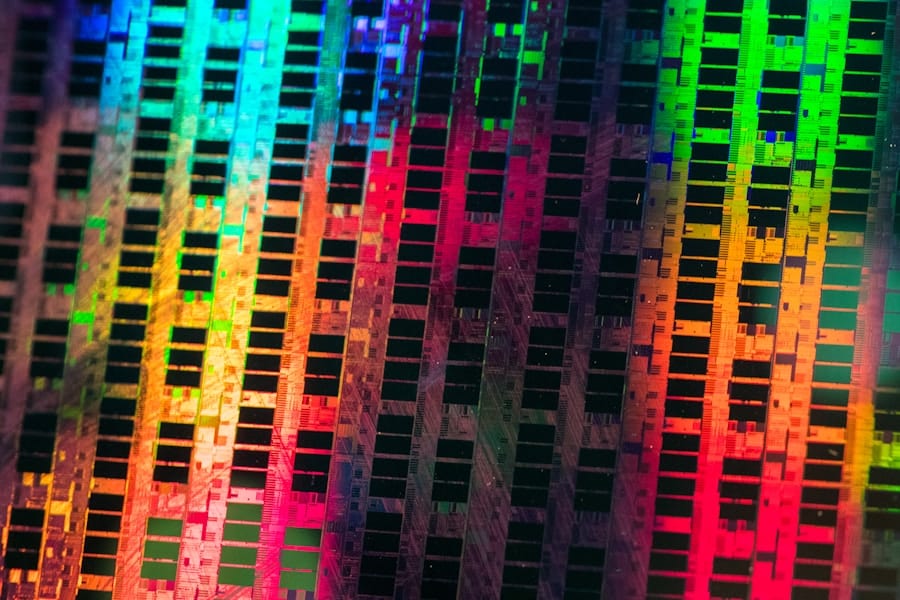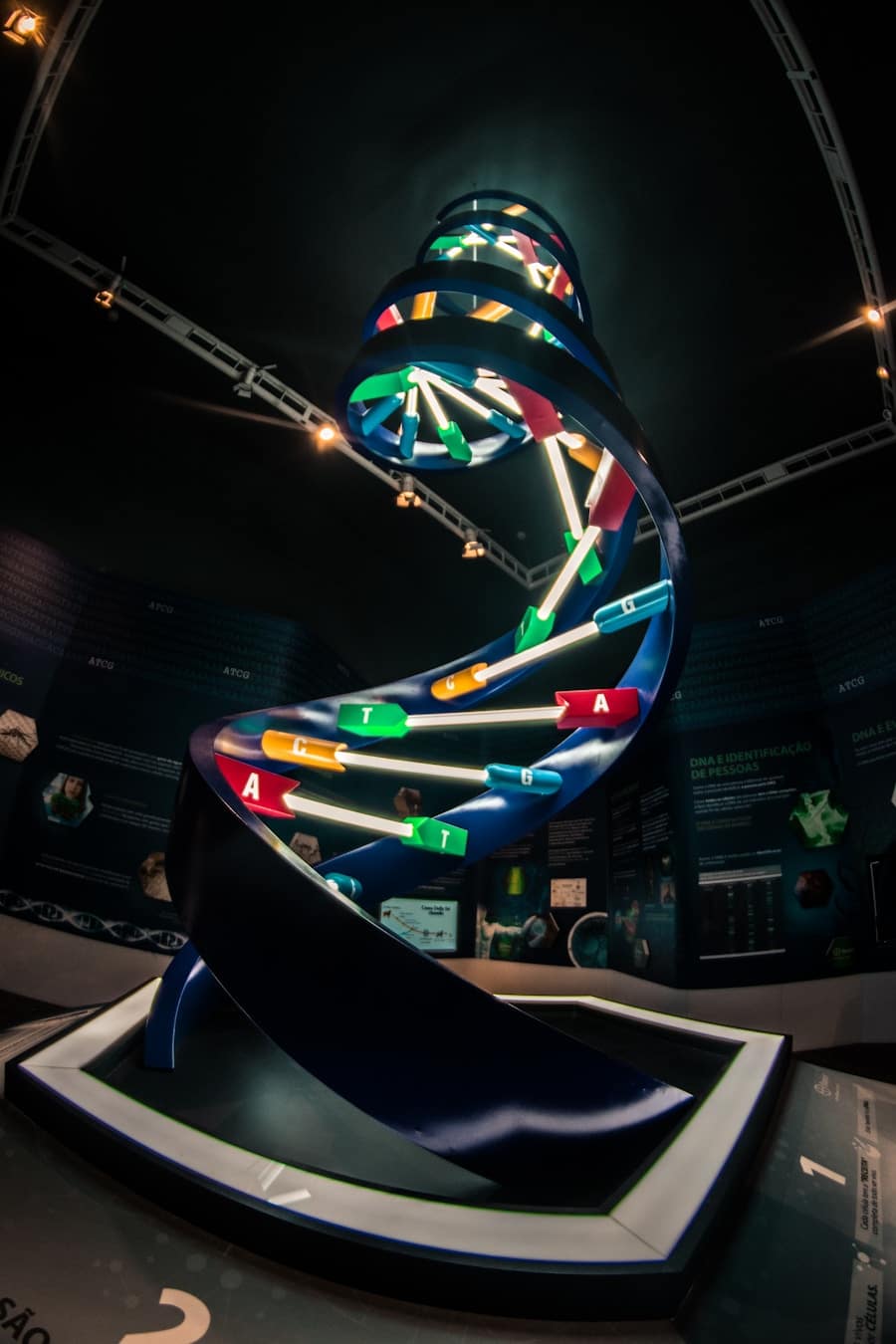In an era characterized by an exponential increase in data generation, the quest for efficient and sustainable data storage solutions has never been more pressing. Traditional storage methods, such as hard drives and magnetic tapes, face significant limitations in terms of capacity, longevity, and energy consumption. As the digital universe expands, with estimates suggesting that by 2025, the global data sphere will reach 175 zettabytes, the need for innovative storage solutions becomes paramount.
One of the most promising alternatives that has emerged is DNA data storage, a technology that leverages the natural properties of deoxyribonucleic acid (DNA) to encode vast amounts of information in a compact and durable format. DNA, the molecule that carries genetic instructions in living organisms, has an unparalleled density for information storage. Theoretically, a single gram of DNA can hold approximately 215 petabytes of data, which is equivalent to about 215 million gigabytes.
This staggering capacity is coupled with the remarkable stability of DNA; under optimal conditions, it can last for thousands of years without degradation. As researchers delve deeper into the potential of DNA as a medium for data archiving, they are uncovering not only its technical advantages but also its implications for the future of information management in a world increasingly reliant on digital data.
Key Takeaways
- DNA storage offers a promising solution for long-term data archiving due to its high density and durability.
- Advantages of DNA storage over traditional methods include its potential for long-term stability, high storage capacity, and resistance to obsolescence.
- Challenges and limitations of DNA storage for data archiving include high cost, slow read and write speeds, and the need for specialized equipment and expertise.
- Current research and developments in DNA data storage focus on improving synthesis and sequencing techniques, as well as developing error correction methods.
- Potential applications and implications of DNA data storage range from preserving cultural and scientific heritage to enabling massive data storage for future generations.
- Ethical and privacy considerations in DNA data storage include concerns about consent, security, and the potential for misuse of personal genetic information.
- The future outlook for DNA data storage is optimistic, with predictions of continued advancements in technology and decreasing costs, leading to widespread adoption in global data archiving.
- In conclusion, DNA storage is poised to play a significant role in the future of global data archiving, offering a viable solution for long-term preservation of vast amounts of information.
Advantages of DNA Storage over Traditional Methods
One of the most significant advantages of DNA storage is its extraordinary density. Traditional storage media, such as hard drives and solid-state drives, require substantial physical space to store large volumes of data. In contrast, DNA molecules can pack information into an incredibly small volume.
This compactness not only reduces the physical footprint required for data centers but also minimizes the environmental impact associated with data storage infrastructure. For instance, a single cubic millimeter of DNA could theoretically store around 1 exabyte of data, making it an incredibly efficient medium for archiving vast datasets. Another compelling advantage is the longevity and stability of DNA as a storage medium.
Unlike magnetic tapes or optical discs that can degrade over time due to environmental factors such as temperature fluctuations and humidity, DNA remains stable under appropriate conditions. Research has shown that DNA can survive for thousands of years when stored in a dry and cool environment.
Furthermore, the inherent error-correcting capabilities of DNA sequences can enhance data integrity, ensuring that information remains accurate and retrievable even after long durations.
Challenges and Limitations of DNA Storage for Data Archiving

Despite its numerous advantages, DNA storage is not without its challenges and limitations. One of the primary hurdles is the cost associated with synthesizing and sequencing DNCurrently, the processes involved in encoding data into DNA and subsequently retrieving it through sequencing are expensive and time-consuming. While advancements in biotechnology are gradually reducing these costs, they remain significantly higher than traditional storage methods.
For instance, as of 2023, the cost to synthesize DNA is estimated to be around $1,000 per megabyte, which is prohibitively expensive compared to conventional hard drives that can store terabytes of data for a fraction of that price. Additionally, the speed at which data can be written to and read from DNA is another critical limitation. Current methods for synthesizing and sequencing DNA are relatively slow compared to electronic storage technologies.
While researchers are working on improving these processes through innovations such as parallel synthesis techniques and high-throughput sequencing methods, achieving speeds comparable to traditional storage systems remains a significant challenge. This limitation poses practical difficulties for applications requiring rapid access to large datasets, such as real-time analytics or high-frequency trading.
Current Research and Developments in DNA Data Storage
The field of DNA data storage is rapidly evolving, with numerous research initiatives aimed at overcoming existing challenges and unlocking its full potential. One notable area of focus is the development of more efficient encoding algorithms that can optimize the way data is translated into DNA sequences. Researchers are exploring various coding schemes that minimize errors during synthesis and sequencing while maximizing data density.
For example, techniques such as Huffman coding and Reed-Solomon error correction are being adapted to enhance the reliability and efficiency of DNA-based storage systems. Moreover, advancements in synthetic biology are paving the way for more cost-effective and scalable DNA storage solutions. Companies like Twist Bioscience and Ginkgo Bioworks are at the forefront of this innovation, working on automating the synthesis process to reduce costs and increase throughput.
Additionally, collaborations between academic institutions and industry leaders are fostering interdisciplinary approaches that combine expertise in computer science, molecular biology, and materials science to drive progress in this field. As these developments continue to unfold, they hold the promise of making DNA storage a viable alternative to traditional methods within the next decade.
Potential Applications and Implications of DNA Data Storage
The potential applications of DNA data storage are vast and varied, spanning multiple sectors including healthcare, finance, and environmental science. In healthcare, for instance, the ability to store genomic data in DNA format could revolutionize personalized medicine by enabling the archiving of vast amounts of patient information in a compact form. This would facilitate easier access to genetic data for research purposes while ensuring long-term preservation without loss of quality or integrity.
In finance, where data security and integrity are paramount, DNA storage could provide a robust solution for archiving sensitive information such as transaction records or customer data. The inherent stability and durability of DNA make it an attractive option for institutions looking to safeguard their data against cyber threats or physical damage. Furthermore, environmental scientists could leverage DNA storage to archive extensive datasets related to climate change research or biodiversity studies, ensuring that critical information remains accessible for future generations.
Ethical and Privacy Considerations in DNA Data Storage

As with any emerging technology, the implementation of DNA data storage raises important ethical and privacy considerations that must be addressed proactively. One significant concern revolves around the potential misuse of genetic information encoded within DNA sequences. If sensitive personal data were to be stored in a format that could be accessed or interpreted by unauthorized individuals or entities, it could lead to serious privacy violations.
Therefore, establishing robust security protocols and regulatory frameworks will be essential to protect individuals’ rights and ensure responsible use of this technology. Moreover, there are broader ethical implications related to ownership and consent when it comes to storing personal or sensitive information in biological formats. Questions arise regarding who has the right to access or control this data once it is encoded in DNA—whether it be individuals, organizations, or governments.
As researchers continue to explore the capabilities of DNA storage, it will be crucial to engage in discussions about these ethical dilemmas to foster public trust and ensure that technological advancements align with societal values.
Future Outlook and Predictions for DNA Data Storage
Looking ahead, the future of DNA data storage appears promising as ongoing research continues to address current limitations while unlocking new possibilities. Experts predict that within the next decade, advancements in synthetic biology and computational techniques will significantly reduce costs associated with DNA synthesis and sequencing. This reduction will likely make DNA storage more accessible to a broader range of industries beyond specialized research institutions.
Furthermore, as society grapples with increasing concerns about data security and environmental sustainability, DNA storage may emerge as a preferred solution due to its inherent advantages in both areas. The ability to store vast amounts of information in a compact format with minimal energy requirements aligns well with global efforts toward reducing carbon footprints associated with traditional data centers. As organizations seek innovative ways to manage their growing data needs sustainably, DNA storage could play a pivotal role in shaping the future landscape of data archiving.
The Role of DNA Storage in the Future of Global Data Archiving
As we stand on the brink of a new era in data management, DNA storage presents an exciting frontier that holds immense potential for transforming how we archive information globally.
While there are still hurdles to overcome regarding cost and speed, ongoing research and technological advancements are paving the way for practical applications across various sectors.
The implications of adopting DNA storage extend beyond mere technical advantages; they encompass ethical considerations that must be navigated thoughtfully as this technology matures. As we look toward a future where digital information continues to proliferate at an unprecedented rate, embracing innovative solutions like DNA storage will be crucial in ensuring that we can effectively manage our collective knowledge while safeguarding individual rights and privacy. The journey toward realizing the full potential of DNA as a medium for data archiving is just beginning, but its promise is already reshaping our understanding of what is possible in the realm of information management.
In a recent article discussing the future of DNA storage for archiving global data, it is interesting to consider how advancements in technology, such as the best software for house plans, can impact the way we store and access information. This software can provide innovative solutions for organizing and managing data, which could potentially be integrated with DNA storage methods in the future. Additionally, exploring the use of smartwatches, like those reviewed in this article, could offer new possibilities for accessing and interacting with archived data stored in DNA. The intersection of these technologies presents exciting opportunities for the future of data storage and management.
FAQs
What is DNA storage for archiving global data?
DNA storage for archiving global data is a method of storing large amounts of digital information in the form of DNA molecules. This technology leverages the incredible data storage capacity and durability of DNA to preserve information for long periods of time.
How does DNA storage work?
DNA storage works by encoding digital data into the sequence of nucleotides (A, T, C, and G) that make up DNA. This encoded DNA can then be synthesized and stored in a secure location. When the data needs to be retrieved, the DNA is sequenced and the original digital information is reconstructed.
What are the advantages of DNA storage for archiving global data?
Some advantages of DNA storage for archiving global data include its high data density, long-term stability, and potential for scalability. DNA can store massive amounts of data in a very small space and can remain intact for thousands of years under the right conditions.
What are the challenges of DNA storage for archiving global data?
Challenges of DNA storage for archiving global data include the high cost of synthesis and sequencing, the relatively slow read and write speeds, and the need for specialized equipment and expertise. Additionally, there are ethical and regulatory considerations surrounding the use of DNA for data storage.
What is the future outlook for DNA storage for archiving global data?
The future of DNA storage for archiving global data looks promising, with ongoing research and development efforts focused on improving the efficiency, cost-effectiveness, and practicality of the technology. As advancements are made, DNA storage could become a viable solution for long-term data archiving on a global scale.

